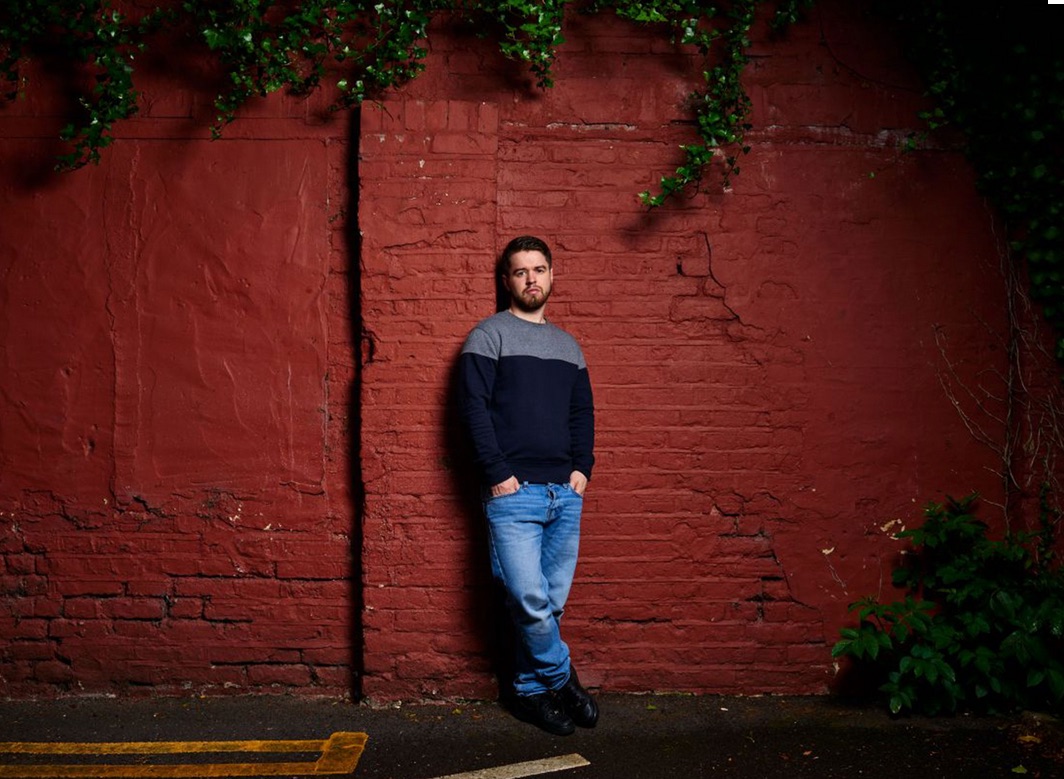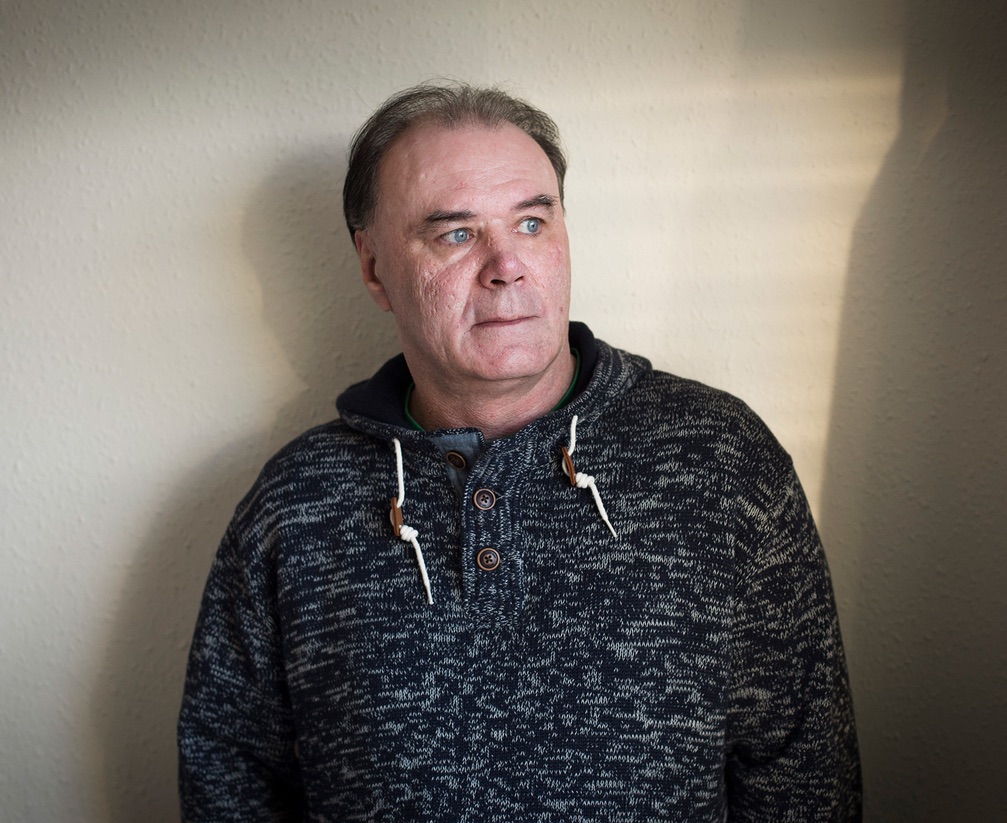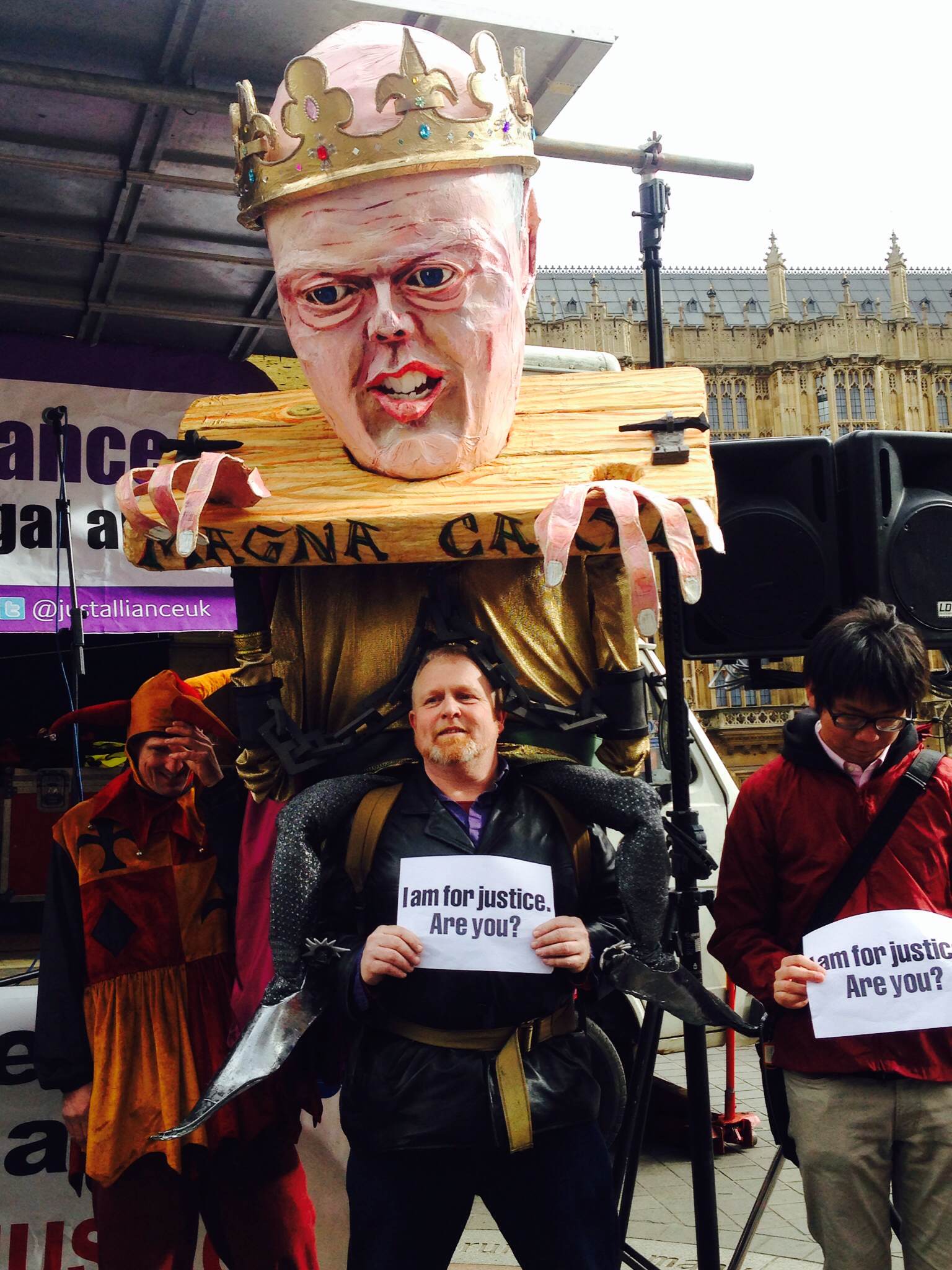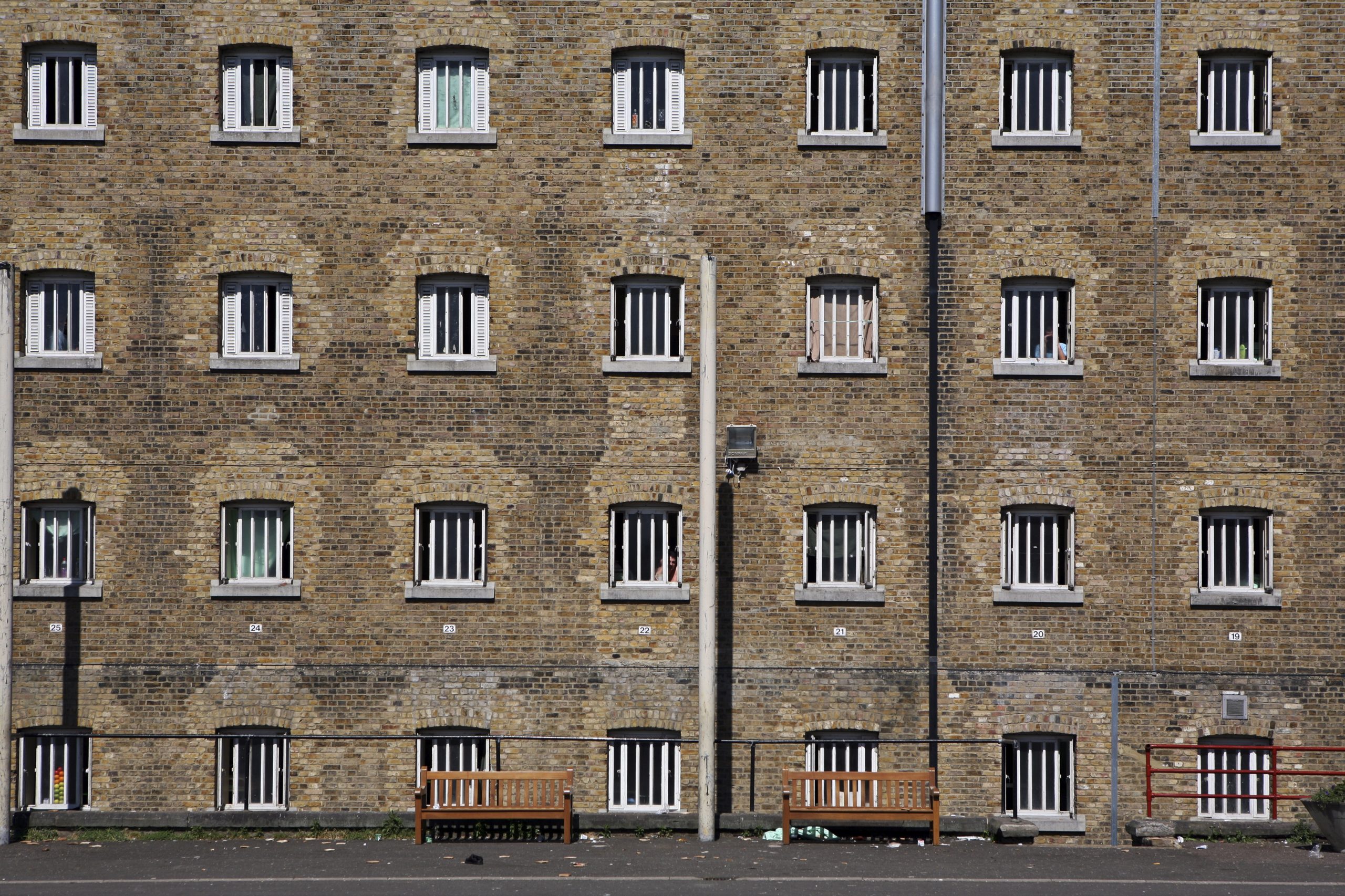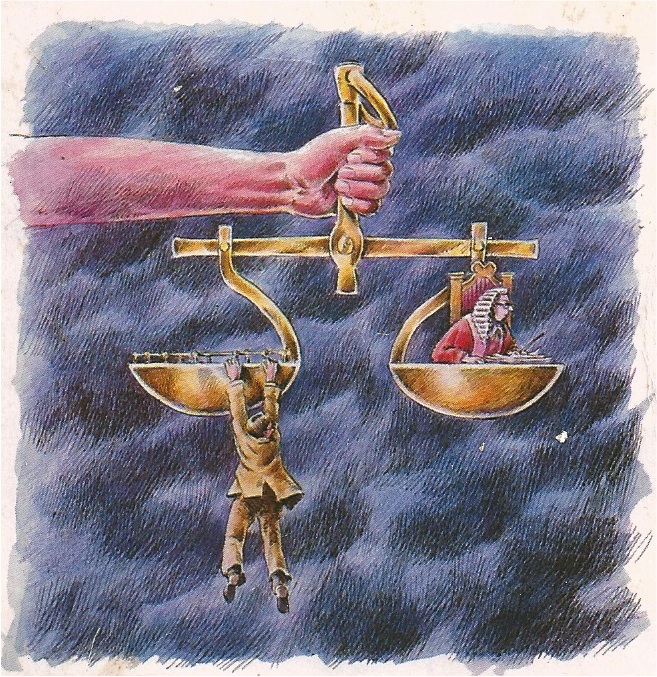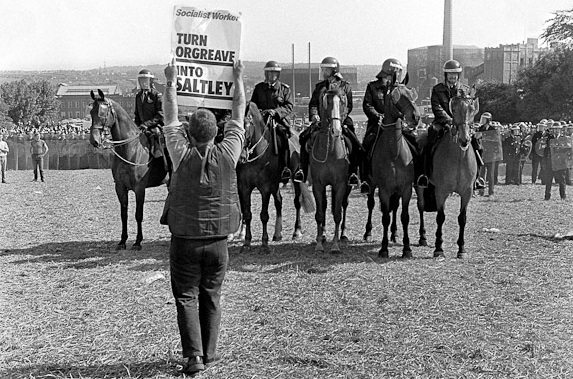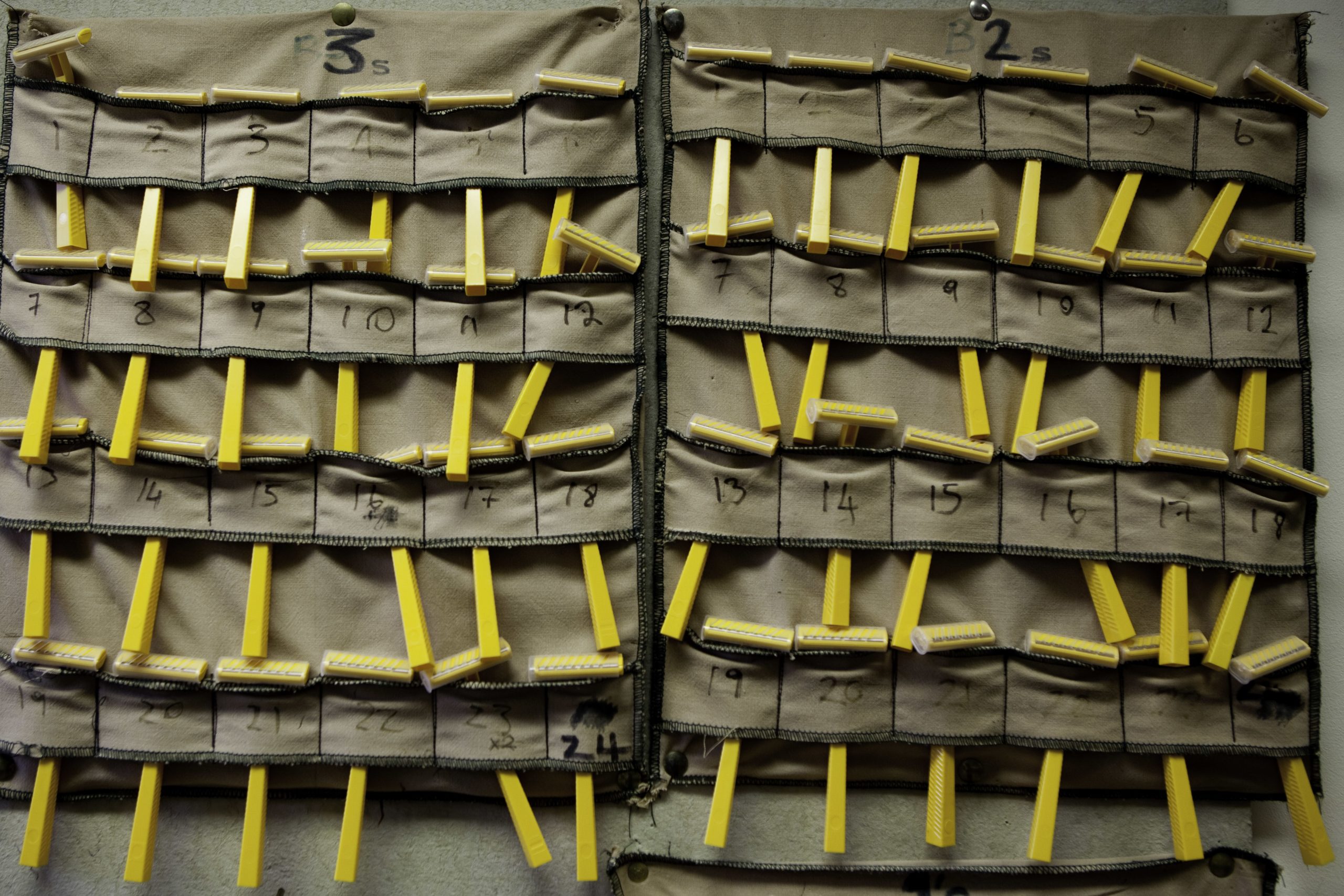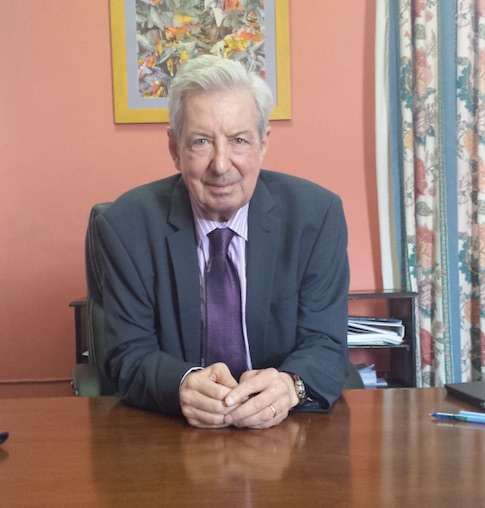[contextly_auto_sidebar]
Thanks so much to everyone who has written for – or otherwise supported – www.thejusticegap.com over the last year. Too numerous to mention by name – but listed on our contributors’ page.
Special thanks to our commissioning editors – Brian Thornton, Miranda Grell, Alex Cisneros, Ollie Persey, Caterina Franchi, and Lucie Boase – for commissioning, editing and their help running the site over the last 12 months.
Please see below for some highlights over the last 12 months – articles, quotes and pix – from last year.
Look out for the first issue of Proof, our magazine – out on January 18, 2016 – but you can order now.
If you want to support us, then please buy a copy.
See you in 2016.
Best wishes,
Jon Robins, editor
JANUARY
‘I have a case worth fighting. I’m not going to give up’
‘I lost everything I had before I went into prison,’ Victor Nealon told Jon Robins.
Victor Nealon, who spent 17 years in prison for attempted rape before his conviction was quashed, began legal action after being left penniless, suffering from post-traumatic stress and unable to work as a result of his wrongful imprisonment.
‘It is one thing to lose your freedom, family, friends, job and money; but it’s quite another thing to be told in prison that, unless you confess to the crime, you’ll never ever be released. I was told I had no prospect for release. I continued to maintain my innocence for 17 years.’
Victor Nealon
An edited version of the interview featured in the Independent on Sunday (A Failure of Justice).
 ‘No mother should lose a child by suicide in prison’
‘No mother should lose a child by suicide in prison’
The head of the Howard League for Penal Reform, Frances Crook spoke to Brooke Perriam. She spoke about her group being dismissed by the then justice secretary Chris Grayling as a left wing pressure group.
‘I would prefer a response from ministers which says, yes, this is a problem, here is what we are going to do to address it, instead of childish attacks on a charity and name-calling.’
Frances Crook
A Better Way Forward?
Michael Zander QC didn’t pull any punches in his analysis of the tricky relationship between the Court of Appeal and the miscarriage of justice watchdog, the Criminal Cases Review Commission (CCRC).
‘The whole issue of what is wrong with the system is, fundamentally, the attitude of the Court of Appeal to jury decisions.’
Michael Zander QC
FEBRUARY
Innocent – but not innocent enough?
Michelle Bates, Barry George’s sister, wrote about their fight for justice
‘My brother, who was wrongly convicted of the murder of TV presenter, Jill Dando, has never been awarded any compensation for the years he spent incarcerated for this killing. His conviction was quashed in 2007, and he was then released in 2008, when the jury at his second trial unanimously found him not guilty. Since then, we have tried every avenue we could think of to get this government to correct the wrong, and to make recompense for all that he has lost.’
Michelle Bates
‘Law without justice is like a body without a soul. It’s a dead letter’
Chris Grayling’s global law summit to celebrate the 800th anniversary of Magna Carta was either a fittingly high-profile and dignified celebration of Britain’s unwritten constitution or else a grubby cash-in on our heritage to enable corporate lawyers to schmooze big business. Mary-Rachel McCabe reported on the Not the Global Law Summit protest.
‘The Global Law Summit demonstrates that global capital has hijacked human rights. It demonstrates that global law is for capital, not for humans. Law without justice is like a body without a soul. It is a dead letter. It does not inspire obedience.’
Professor Costas Douzinas, Birkbeck College
Victimology
Barbara Hewson wrote about ‘justice as therapy’ and the enthusiasm of politicians for a new ‘victim’s law’.
‘The victim’s credibility must be tested, inaccuracies or inconsistencies in her story must be revealed. Taking a cue from the therapeutic culture, victims’ rights advocates tend to impute virtue to victimhood, but, of course, it is sometimes misplaced. Taking the presumption of innocence seriously means that we can never take an accusation at face value.’
Barbara Hewson
MARCH
Guess which part of the criminal justice system suffered the deepest cut of entire criminal justice system?
Jon Robins wrote about the under-funded and over-subscribed CCRC. ‘For every £10 that my predecessor had to spend on a case a decade ago, I have £4 today,’ the CCRC’s chair Richard Foster told MPs on the House of Commons’ Justice Committee.
Foster reckoned that the Commission had suffered the biggest cut that had taken place anywhere in the criminal justice system.
‘I am quite certain that if the rest of the public sector had been able to absorb cuts of that kind, austerity would be a thing of the past and we would no longer be worrying about the deficit.’
Richard Foster
Meet Daniel: wrongly accused, exonerated and financially ruined
Was access to justice a class issue? asked Penelope Gibbs. ‘It is undoubtedly the case that if you are wealthy, you can afford to employ skillful lawyers in the civil or criminal courts, but new laws are creating injustice for the wealthy, and those on middle incomes, too.’
‘Pat would have represented the people who shot him’
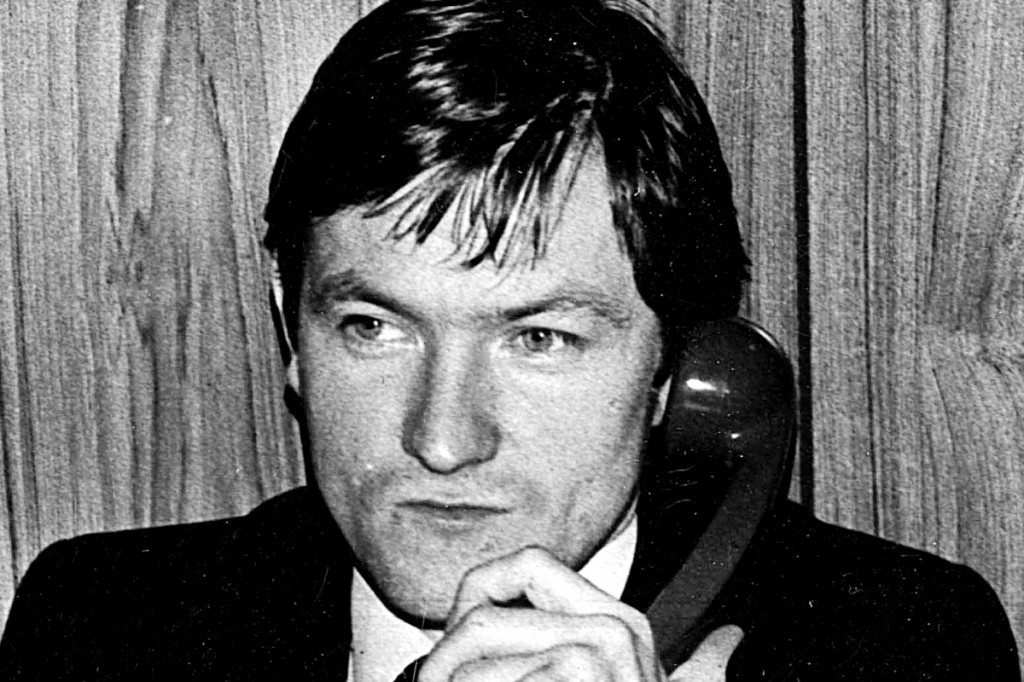 Christabel McCooey wrote about the legacy of the murdered Belfast civil rights lawyer Pat Finucane. McCooey spoke to his son Michael Finucane in the week that the Guardian noted that ‘the boundary between another human rights lawyer and his controversial clients [was] being blurred’. Michael Finucane condemned as ‘deplorable’ the threats to fellow human rights lawyer Phil Shiner.
Christabel McCooey wrote about the legacy of the murdered Belfast civil rights lawyer Pat Finucane. McCooey spoke to his son Michael Finucane in the week that the Guardian noted that ‘the boundary between another human rights lawyer and his controversial clients [was] being blurred’. Michael Finucane condemned as ‘deplorable’ the threats to fellow human rights lawyer Phil Shiner.
‘The work that Phil carries out may be difficult and unpopular but that can never be a justification for attacking him. It is a cornerstone of democracy that lawyers can carry out their duties without fear of reprisal or being subject to intimidation. This treatment of Phil and his family must stop immediately.’
Michael Finucane on Phil Shiner
‘Arrest first, investigate later’
Paul Gambaccini was kept on bail for almost a year before police dropped sex abuse charges. His lawyer Kate Goold argued that his case highlighted the plight of many in legal limbo. In July 2014, almost 19,000 in the Met police area were on pre-charge bail, 4,630 on bail for over six months.
How long is it acceptable for a person to stay in prison for a crime they didn’t commit?
That was the question at the heart of a report by the Justice Select Committee on the performance of the CCRC, reckoned Emily Bolton of the new Centre for Criminal Appeals. ‘Thanks to cuts to the funding of the Commission, the answer appears to be ‘two and a half years’ - minimum,’ she said.
‘Human beings make mistakes and no system has more human parts than the criminal justice system. Imagine you have been sent to prison for a crime you did not commit. How does the system deal with this? How long should it take to set things right?’
Emily Bolton
APRIL
The CPS decision on Janner might please no-one, but it happens to be right
Dan Bunting considered the case of Lord Greville Janner, due to stand a ‘trial of the facts’ to establish whether child-abuse allegations against him were true. He died shortly before Christmas.
In Memoriam Noel Hartnett
David Rose wrote about the life of an unsung hero.
‘Noel Hartnett lived in what should have been peaceful obscurity. But though he still found time to indulge his love of tinkering with internal combustion engines, his life was dominated for many years by a unique struggle for justice. By the time he died, aged 72, on 22 March 2015, I had known him for nearly three years. I wish I’d told him to his face what I thought and still think: that he was an unsung hero.’
David Rose on Noel Hartnett
This essay also features in Proof magazine – out January 18 – order NOW.
Are the days of indefinite detention finally numbered?
‘Indefinite detention of people who have committed no crime – and without even any independent review – is wrong,’ wrote Paul Dillane, of the UK Lesbian and Gay Immigration Group. ‘It can be deeply scarring – especially for asylum seekers who have already suffered abuse. And it is extremely expensive for taxpayers. No other western nation does it. We don’t need to either.’
Does the press really need to depict kids as monsters?
‘Is ‘naming and shaming’ someone in social media for any kind of transgression the modern equivalent of putting people in the stocks and pelting them with rotten eggs? asked Penelope Gibbs.
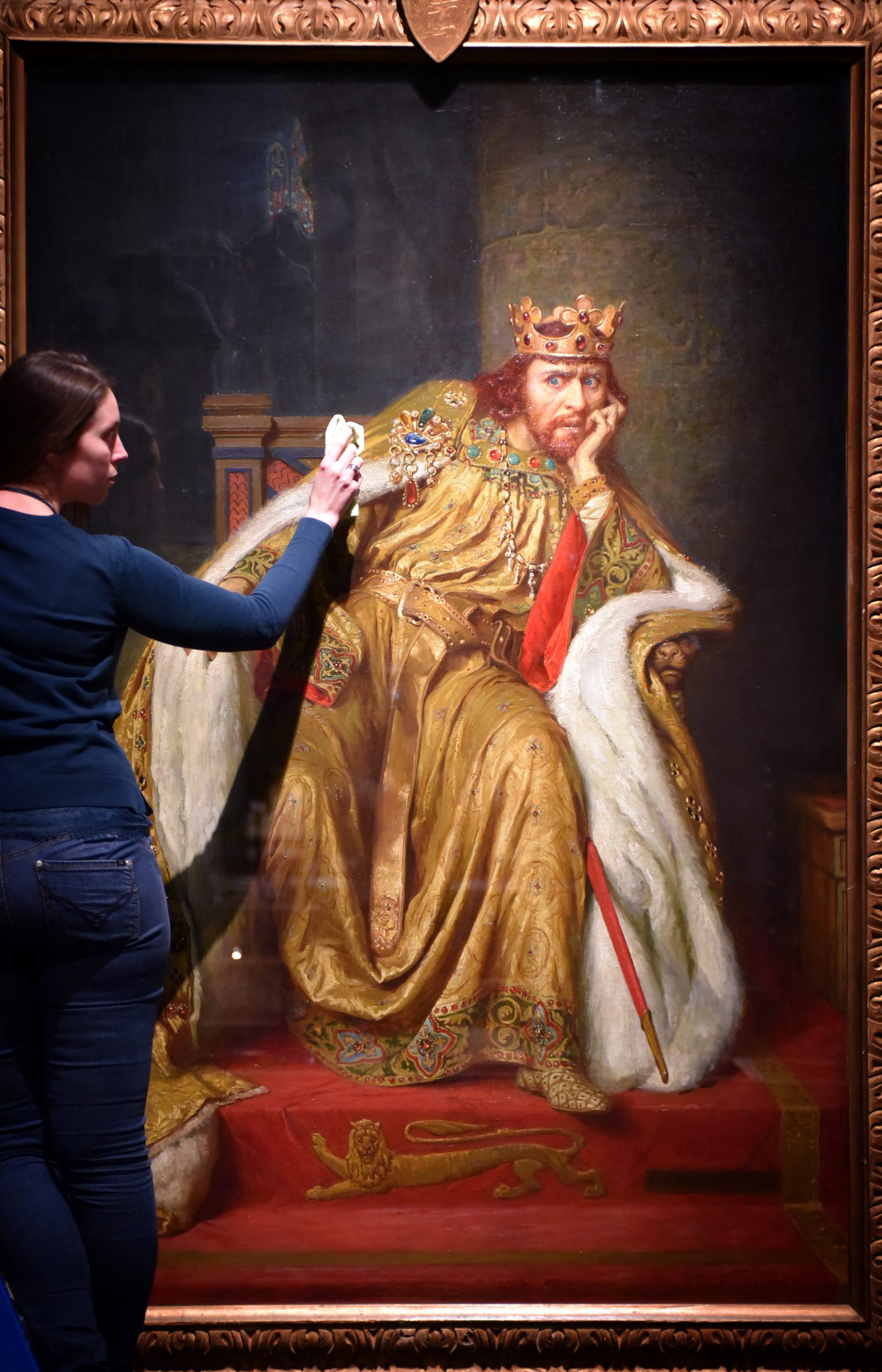
A British Library exhibition officer dusts a painting on loan from The Victoria and Albert Museum to Magna Carta- Law, Liberty, Legacy. Photography © Clare Kendall
MAY
Why are so many people being evicted?
Rebecca Omonira-Oyekanmi wrote a three-part article on the grim realities of life in the midst of our housing crisis.
‘In Britain poor people in social housing live under constant threat of eviction. Lose one week’s work and you risk losing your home. Someone makes a mistake on your housing benefit and you are one step away from sleeping rough. In 2014 more than 100,000 social landlords issued possession claims against tenants.’
Rebecca Omonira-Oyekanmi
‘The more I discovered, the worse it got’
Jon Robins interviewed Alastair Morgan, the brother of Daniel Morgan, a private eye who was found murdered in a south-east London car park with an axe embedded in his head in 1987.
Alastair has now spent nearly three decades fighting to uncover the truth about Daniel’s brutal killing.
‘My position for many years was the police had covered up their involvement in a contract murder and, not only that, all indications were that my brother was going to blow the whistle on police corruption. Why couldn’t the press see how important this was? That baffled me.’
Alastair Morgan
Is it ‘revolution time’? Where next for defence lawyers
Tom Smith considered the stand off between the legal profession and the government over the plans for reforming the defence market.
‘In April, the criminal legal aid profession organised a protest rally in London, their final effort to force their cause onto the election agenda. Former Court of Appeal Judge Sir Anthony Hooper delivered a keynote speech at the event, uttering the following rallying cry: “If the Conservatives come back into power, it’s revolution time.”‘
Tim Smith
Cometh the hour, cometh the Keir
Narice Bernard wanted Keir Starmer to be leader of the Labor Party – whether the former DPP wanted the job or not. ‘In many ways Keir Starmer is the man I dreamed I would be as a boy,’ Bernard wrote.
JUNE
Tom Sargant: Britain’s court of last resort
Jon Robins paid tribute to the pioneering founder of JUSTICE who was described by the journalist Peter Hill as ‘indisputably the founder of the modern movement to correct miscarriages of justice’.
‘I have had absolute cooperation from judges and lawyers. Many of whom are my friends. Although some of them hate my guts, and think I’m a damn nuisance. They don’t believe juries make mistakes. I take a more jaundiced view. I take all the casualties.’
Tom Sargant’s farewell interview to the Observer in 1982
Want to improve our prisons, Mr Gove? Stop. Look. Listen
Lord David Ramsbotham had some advice for the new justice minister.
‘Far too many prisoners are left locked up in their cells all day, doing nothing, which is the very antithesis of rehabilitation, and hardly the best way to help them to live useful and law-abiding lives in the future.’
Lord Ramsbotham
Orgreave 1984
Mark George QC reflected on the 100th day of the miners’ strike, ‘when the South Yorkshire Police were out of control‘ as the Independent Police Complaints Commission announced that it was not going to investigate police conduct during the miners’ strike at Orgreave in 1984.
‘Some people still talk in terms of “the miners’ riot” at Orgreave. Maybe some police officers still believe that is what it was. But there are thousands of others who were also there that day who know that the only people rioting on 18th June 1984 were not bare-chested sunbathing miners but police officers from all over the country tooled up with long and short shields and staffs with which to beat and cause injury.’
Mark George
‘It’s time for barristers to make a stand and strike’
Jon Robins spoke to Michael Mansfield QC about the breakdown in relations between ministers and lawyers.
‘If the lawyers don’t stand up now the government will decimate legal welfare completely and will ultimately lead to the collapse of an effective and fair criminal justice system. Including the very existence of an independent and committed public service profession able to challenge the excesses of successive overweening Governments.’
Michael Mansfield QC
JULY
Changing prisons, saving lives
‘Early last year, I was asked by the Minister for Prisons to lead a review of the 83 self-inflicted deaths of young people aged 18 to 24 in NOMS custody from April 2007 until the end of 2013,’ Lord Toby Harris began. ‘This was a daunting task made all the more so by being told that this was once-in-a-generation opportunity to have an impact on the lives of some of the most vulnerable individuals in society.’
‘If the Government chooses to ignore the Review’s recommendations, young people will continue to die unnecessarily in our prisons and we will continue to waste countless millions of pounds in failing to rehabilitate those who could be rehabilitated, in locking up those for whom a non-prison option would be more appropriate, and in failing to intervene early enough to prevent people from entering the criminal justice system in the first place.’
Lord Toby Harris
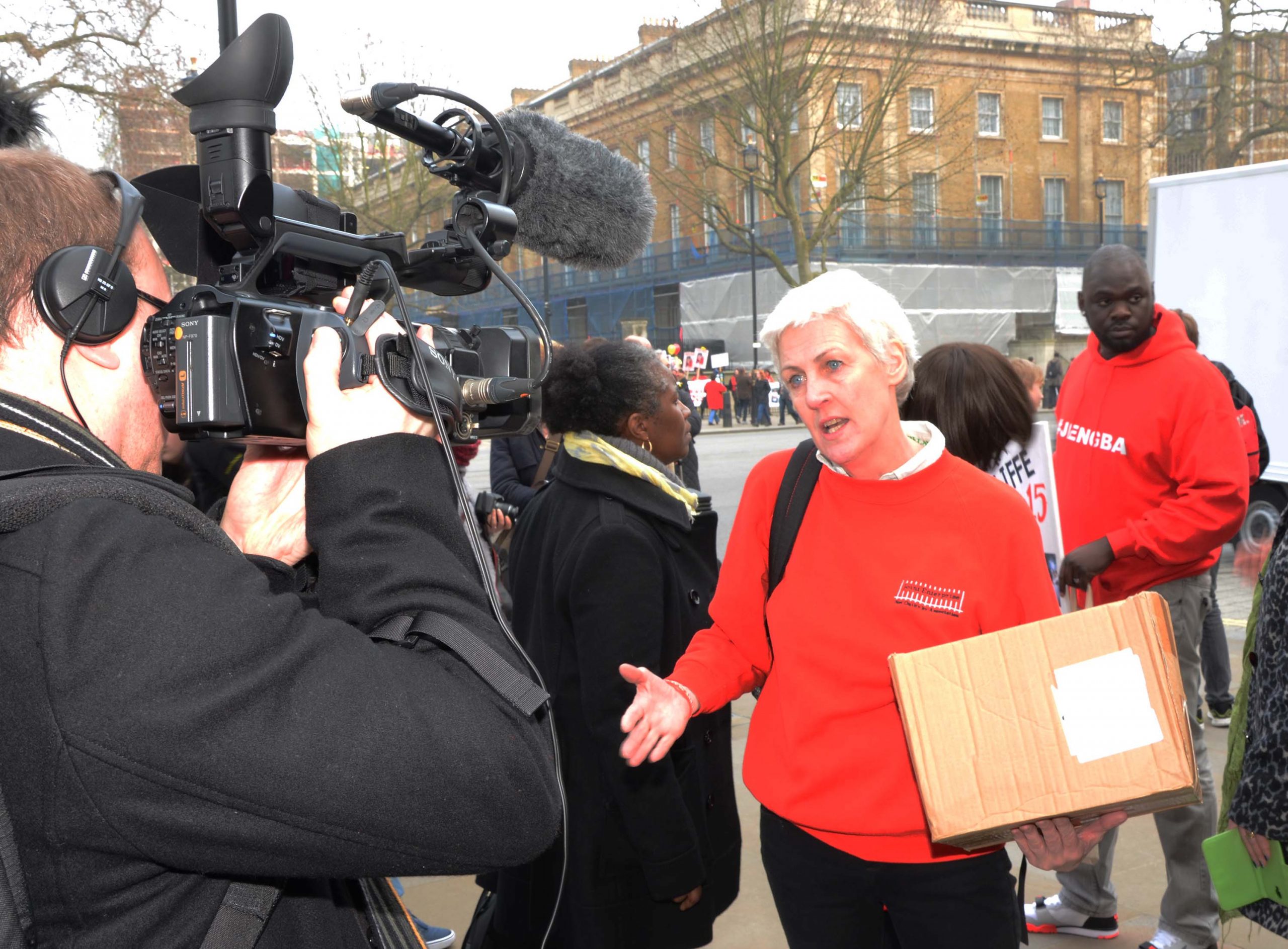 Caught in the joint enterprise dragnet
Caught in the joint enterprise dragnet
Jon Robins interviewed Gloria Morrison, one of the leading lights behind the campaigning group JENGbA (Joint Enterprise Not Guilty by Association).
Morrison explained that she and her colleagues at JENGbA don’t sit ‘as judge and jury’ when someone rang up. ‘I say to them “You do not have to prove it to me what their involvement was, if any.” They have already been tried once in a court of law which I do not trust any more. If the courts are using this kind of charge, they don’t have any credibility.’
Institutionalising miscarriages of justice
The Criminal Cases Review Commission was set up in 1997 and, since then, standards in the justice system had declined sharply, wrote Bob Woffinden. ‘Is the latter observation anything to do with the former?’ he asked.
‘So there has been a spiralling of criminal justice calamities over the past 30 years; where there was once the occasional case, there is now a plethora. It is vital that the CCRC should be scrapped at the earliest opportunity. That may seem counter-intuitive, but the UK’s criminal justice system has deteriorated significantly during the time the CCRC has been in existence.’
Bob Woffinden
Spycops inquiry
Was it the biggest nobbling in English legal history, asked COPS (Campaign Opposing Police Surveillance)
‘The level of intrusion and the numbers of people affected are comparable to phone hacking, yet blacklisting victims are still having to fight to be heard. Unlike hacking, this isn’t a few coppers taking a fat envelope, this was institutional.’
COPS
Thinking the unthinkable
Dennis Eady made the case for a truth and reconciliation commission for victims of historic abuse.
‘Prisons are filling up with frail elderly (mostly) men who have been convicted for alleged offences often decades earlier. Many will die in prison while their families and friends live in despair. Many of these people may be imprisoned for crimes that never happened because in an atmosphere of hunting down supposed perpetrators, where there is no proof or evidential reliability, injustice is inevitable.’
Dennis Eady
SEPTEMBER
Playing cricket with the Afghans
Lucie Boase wrote about her trip to Calais’ jungle, sketches by her sister Dilly Boase.
‘It doesn’t take long to get here. Dover is closer than you think. The ferry crossing to Calais lasts only slightly longer than the time it takes to locate the food hall. Five minutes from the port, down quiet suburban streets and past huge water towers, there’s an anonymous-looking industrial estate. On one side of the road are an unlikely collection of buildings: a dog agility centre, a beer factory, a Hells Angels-style motorbike club headquarters.
And on the other side, their unwelcome neighbour: a vast, sprawling migrant camp.’
Lucie Boase
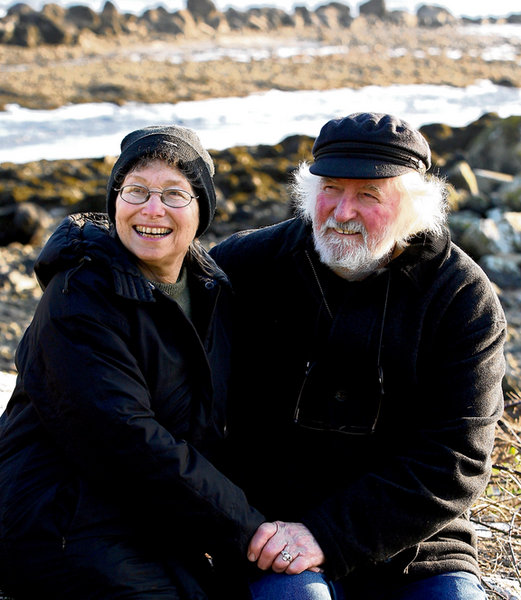 ‘Being on death row put us in a unique position to do good’
‘Being on death row put us in a unique position to do good’
Christabel Mccooey interviewed Sunny Jacobs and Peter Pringle, who spent collectively 32 years on death row for crimes they did not commit.
‘From the experiences I had, I gravitated towards a certain way of being and behaving which was peaceful, towards healing and reconciliation, rather than bitterness or negativity. And this wonderful woman came into my life and we’ve been together ever since. I live a great life. I love it.
Peter Pringle
‘Justice is for all. There are simple truths. They should be self-evident’
Jon Robins interviewed pioneering radical lawyer Lord Tony Gifford.
‘The message was very simple: justice is for all – and, in particular, for those with slender means because they are more likely to be exploited. There are simple truths that should be self-evident. Yet they are being questioned by the powers that be.’
Tony Gifford
Why won’t the Home Office let me visit Yarl’s Wood?
MP Catherine West on being prevented by the home office from going into the notorious detention centre.
‘I want to go to Yarl’s Wood to see for myself what goes on in our Government’s name and to make sure these women’s stories are heard in Parliament. As an elected representative, I won’t give up my fight for access.’
Catherine West
Branded
Alex Cavendish wrote about what he called the prisoners’ mark of Cain.
‘For those who haven’t any personal experience of our criminal justice system it might be imagined that the day an ex-prisoner walks out of the jail gate they are free. In fact, as almost every former con will confirm, that is the moment that the real consequences of imprisonment start to kick in.’
Alex Cavendish
Naked rambler back in custody
 Stephen Gough has now spent almost a decade behind bars for convictions related to his naked rambling. Stephen Slominski reported on his latest encounter withe law. Sketch by Isobel Williams.
Stephen Gough has now spent almost a decade behind bars for convictions related to his naked rambling. Stephen Slominski reported on his latest encounter withe law. Sketch by Isobel Williams.
‘People need to get angry’
Jon Robins interviewed singer song writer and broadcaster Tom Robinson about the art of the protest song (and how he wrote one about legal aid).
Robinson also updated his classic Glad to be Gay with the following new post-Leveson verse.
The papers in Britain are really the pits commissioned by bigots and written by shits;
They plaster their pages with tattle and tits;
Then all this scandal and slander that fits;
They doorstep their victims, tap into their phones, go through their dustbins and burgle their homes;
With police in their pockets and supine MPs,
Rebeka and Rupert still do what they please.
‘They planned to destroy me’
Left with depression and a shattered reputation, retired detective sergeant Gurpal Virdi – an Asian officer with some 30 years’ service who has been accused of sexual assault and racism – reckoned that Scotland Yard conspired against him for years. Virdi spoke to Brooke Perriam.
‘You never think it will happen to you. Me and my colleagues were very professional. We did everything by the book. When it actually happens to you and you are being put through the system, you think what the hell is going on here? We are in England, we are meant to have a proper legal system here.’
 Out of sight, out of mind: Introducing #Unlocked15
Out of sight, out of mind: Introducing #Unlocked15
In October we joined up with Right to Remain and Detention Action on Unlocking Detention. The project was run by Detention Forum, a network of organisations working together to challenge the UK’s use of detention. The series was edited by Caterina Franchi.
What are torture survivors doing in detention centres? asked one contributor.
OCTOBER
‘If we want access to justice, we have to pay for it’
Labour – under the leadership of Jeremy Corbyn – showed a renewed interest in legal aid (which didn’t even get a mention in the party’s election manifesto). Labour launched a review of legal aid attended by Corbyn. Oliver Carter reported.
Pro bono, charity and food banks are not the solution to inequality. If we want a rights-based society with equal access to justice, we have to pay for it.’
Jeremy Corbyn
Is it somehow OK to kill suspected sex offenders?
‘I never thought I would go to the trouble of writing an article suggesting that a sentence is too lenient,’ began Dennis Eady, ‘but sometimes the imbalance and hypocrisy in the justice system drives me to unexpected places.’
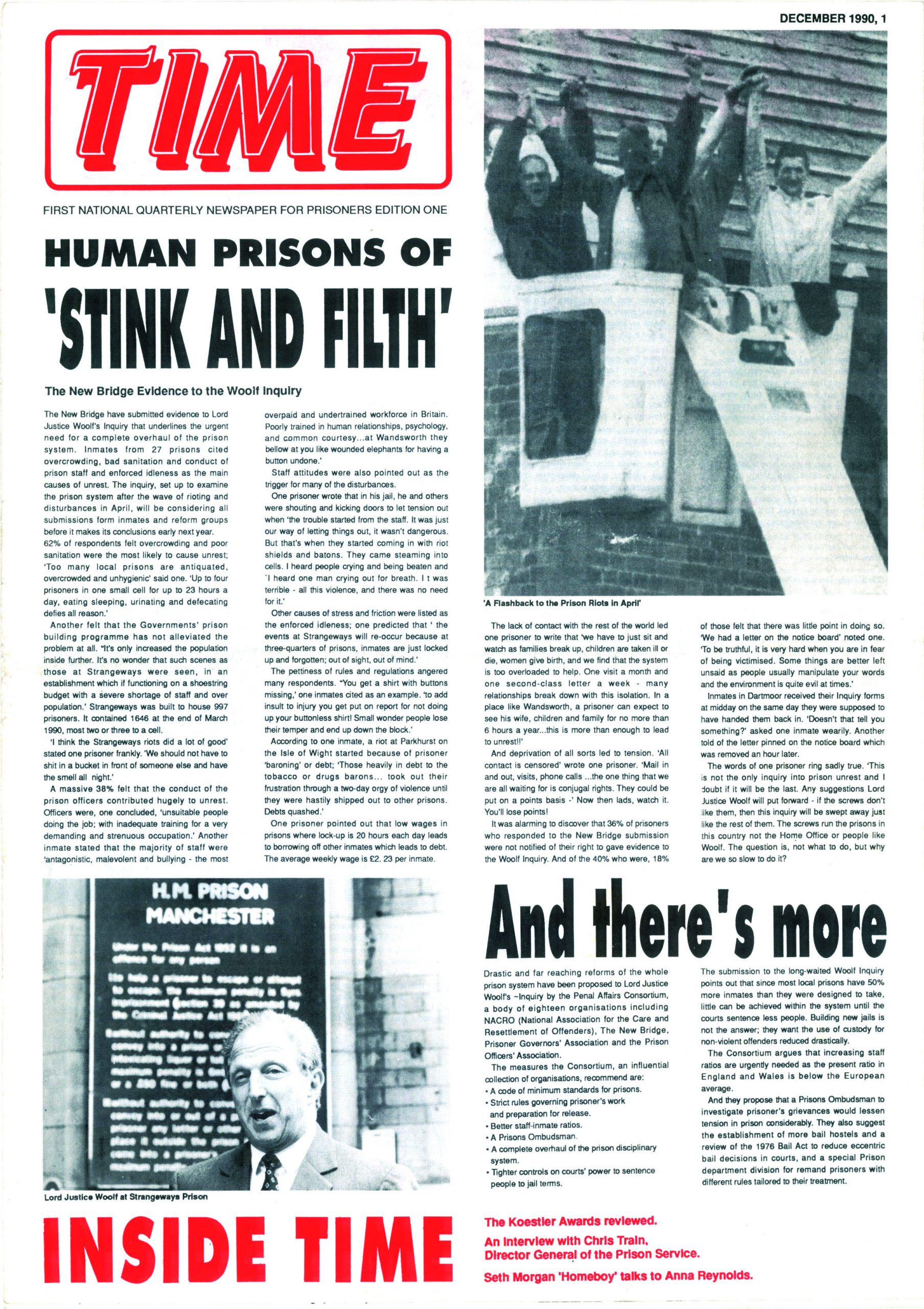 ‘Everyone in our prisons deserves to have their voice heard’
‘Everyone in our prisons deserves to have their voice heard’
Eric McGraw founded Inside Time, the first national newspaper for prisoners 25 years ago.
Eric hands over to Erwin James in January.
‘When I look back to the birth and early development of Inside Time – coming as it did just after the Strangeways prison riots – in 1990 it was a story of good news and bad news. The good news was that we had the full and enthusiastic support of the Prison Service. The bad news was that the then governor of Lincoln Prison banned the paper and urged all prison governors by electronic mail to do the same.’
Eric McGraw
Justice Gap editor wins legal journalist of the year award
Robins won the Bar Council’s legal reporter of the year. The award presented by the former attorney general Dominic Grieve and was in recognition of two articles – both for the Independent on Sunday (and which also featured on www.thejusticegap.com) – on the cases of Victor Nealon and Sam Hallam.
Both Victor Nealon and Sam Hallam have been denied compensation under the Anti-Social Behaviour, Crime and Policing Act 2014. That legislation further restricted eligibility for compensation for the victims of miscarriages of justice to only those who can demonstrate their innocence ‘beyond reasonable doubt’.
‘In our view, the change in law offends the right to the presumption of innocence and makes an award of compensation almost impossible to achieve. With no support available to released people, they continue to be wrongfully persecuted by the state.’
Jodie Blackstock, JUSTICE
NOVEMBER
‘The Treasury regards justice as something sold by the state’
Alex Cisneros spoke to the former Court of Appeal judge Sir Henry Brooke.
‘The [legal aid] cuts have had a disastrous effect on the rights of ethnic minorities. There are people who are having a rotten time suffering from discrimination in the work place and suffering from discrimination at the hands of the police and so on. They are already having problems in a world of welfare cuts where incomprehensible laws are being created.’
Sir Henry Brooke

‘We were never going to be collateral damage’
Geoffrey Long spent 20 months in prison as a result of those allegations of sexual assault made by his own daughter. He walked out of the Court of Appeal three years ago a free man in June 2012, his conviction quashed and a fresh trial ordered. Earlier this year that second trial at Lewes Crown Court collapsed after the daughter admitted she had been lying almost immediately under cross-examination. Jon Robins interviewed Long and his wife Louise.
‘As a society we accept that there are miscarriages of justice and that there has to be collateral damage. For every eight people who get sent to prison in relation to these types of allegations, two are innocent. They’re the collateral damage.’
Geoffrey Long
Should we always prosecute people who make false allegations? asked Matthew Scott in an article about the case.
‘They can’t all be making it up’
Charlotte Rowles of Inside Justice wrote about investigating the claims of prisoners protesting their innocence of convictions relating to historic abuse.
‘I would rather die than admit to something I haven’t done’
Marika Henneberg wrote about the extraordinary case of Omar Benguit.
‘4,837, that is the number of days that Omar Benguit has so far spent in prison for the murder of Oki Shin.
The crime itself is utterly tragic. A young Korean female died after being stabbed on her way home from a nightclub in Bournemouth in 2002. However, what followed can fairly be described as another tragic series of events that has made a mockery of justice.’
Marika Henneberg
DECEMBER
Another denial of women’s access to justice
Emma Scott write about the closure of Eaves.
‘It is vital that we turn back the clock on the decimation of specialist violence against women services like Eaves. With cuts to statutory services and to legal aid, they remain some of the only sources of advice and support for women and sometimes their only advocate for their access to justice.’
Emma Scott
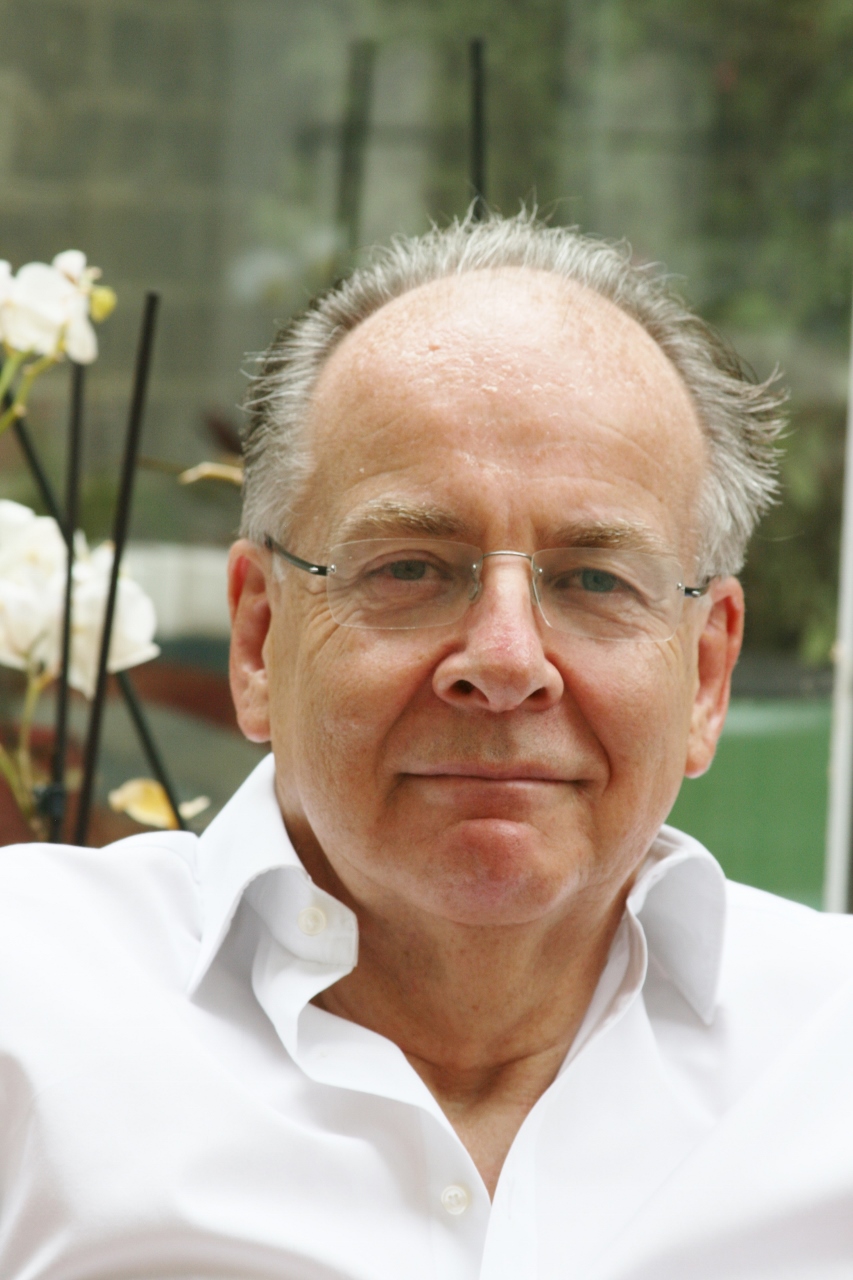 ‘It’s a rejection of the old politics’
‘It’s a rejection of the old politics’
Franck Magennis interviewed former lord chancellor Lord Charlie Falconer ‘I really don’t think it needs to be a lawyer at the head of the justice system to understand what a crass, idiotic thing it was,’ Falconer said of Grayling’s criminal court charge.
Falconer on Gove:
‘He’s making progress by putting right many of the sort of idiocies of Grayling. But the idiocies of Grayling were superficial: no books in prison; the criminal courts charge. Much more significant is the increase in court fees, the reduction in legal aid, the slowing down and under-resourcing of the courts system. Gove is not changing any of that.’
‘I came to this country alone. My escape wasn’t exactly pleasant’
Michelle Kazembe writing for #Unlocked15.
‘I came to this country alone. I was still a vulnerable minor having lost my mother in a tragic attack back in Zimbabwe when I arrived in the UK but my escape wasn’t exactly pleasant.’
Michelle Kazembe
Salem comes to Salisbury
David Jessel’s introduction to the Justice Gap’s new magazine, Proof – out January 18 2016
‘I admit that I thought ‘moral panic’ was pushing it a bit, when I was asked to write a foreword for the first issue of Proof magazine (Justice in a time of Moral Panic) brought together by the excellent (and indeed prize-winning) Justice Gap. But as I sit down at the laptop, Radio 4 announces that the police are standing outside Ted Heath’s home and appealing for victims of the former prime minister’s sex crimes to come forward. Salem, it seems, has come to Salisbury. Only this time, the witch-hunt isn’t for the culprits – the search is for victims of crimes which haven’t yet even been alleged.’
David Jessel
Two-thirds of all people Tasered identified as ‘mentally ill’
Ollie Persey on new stats made available by the Home Office following a Freedom of Information Act request by www.thejusticegap.com.
